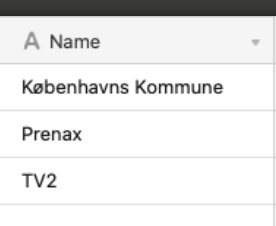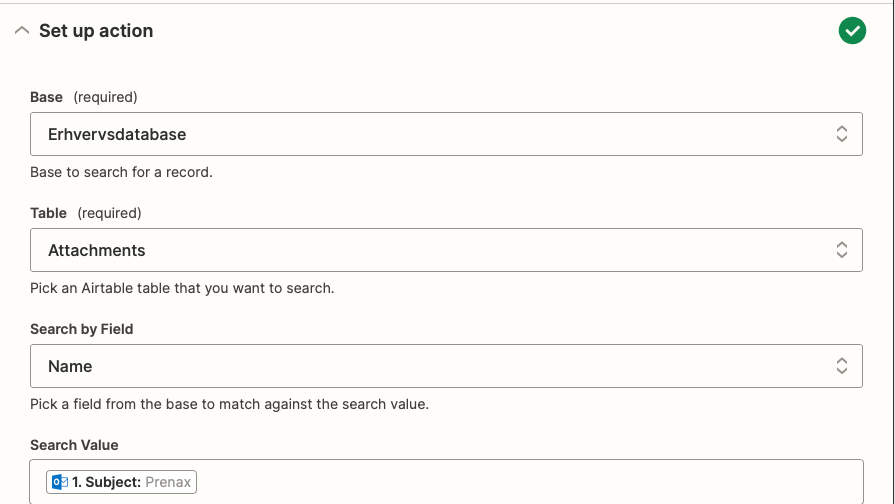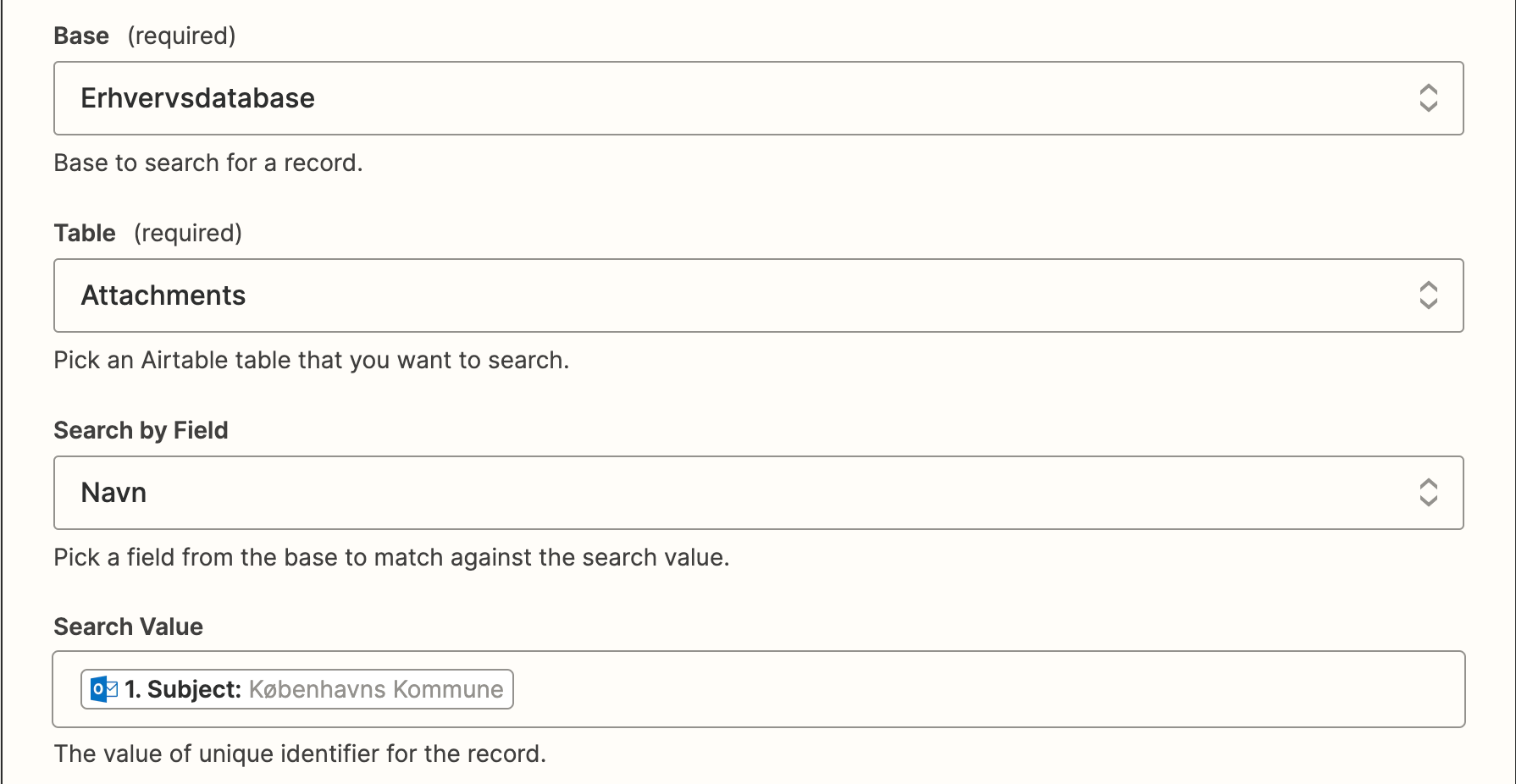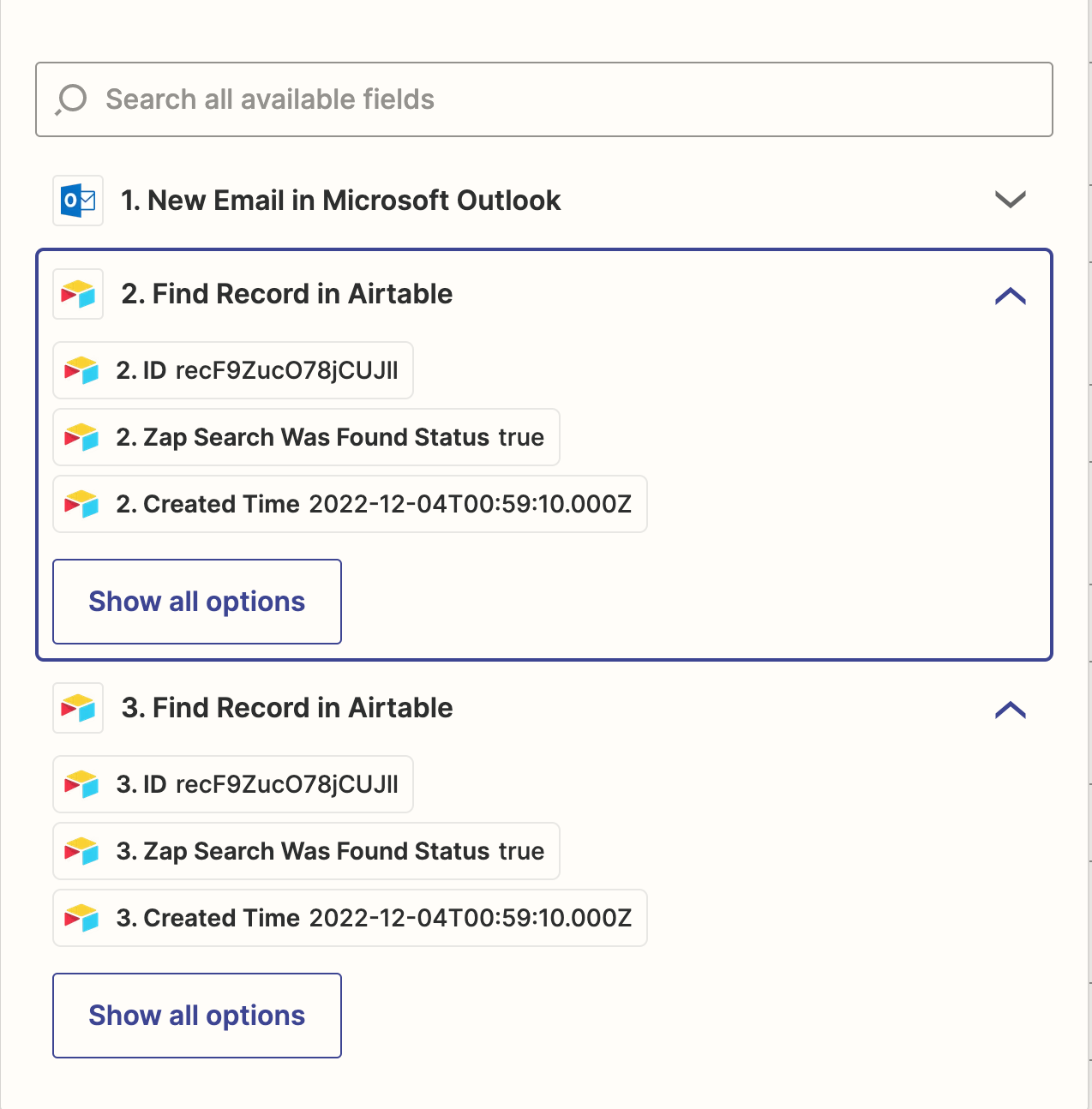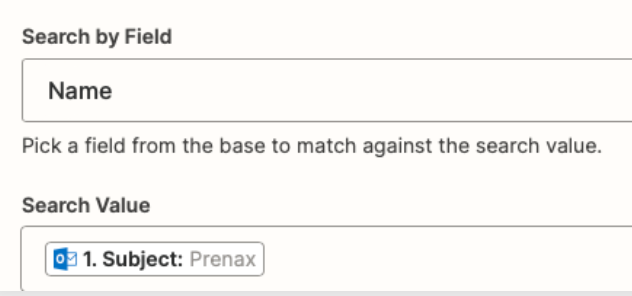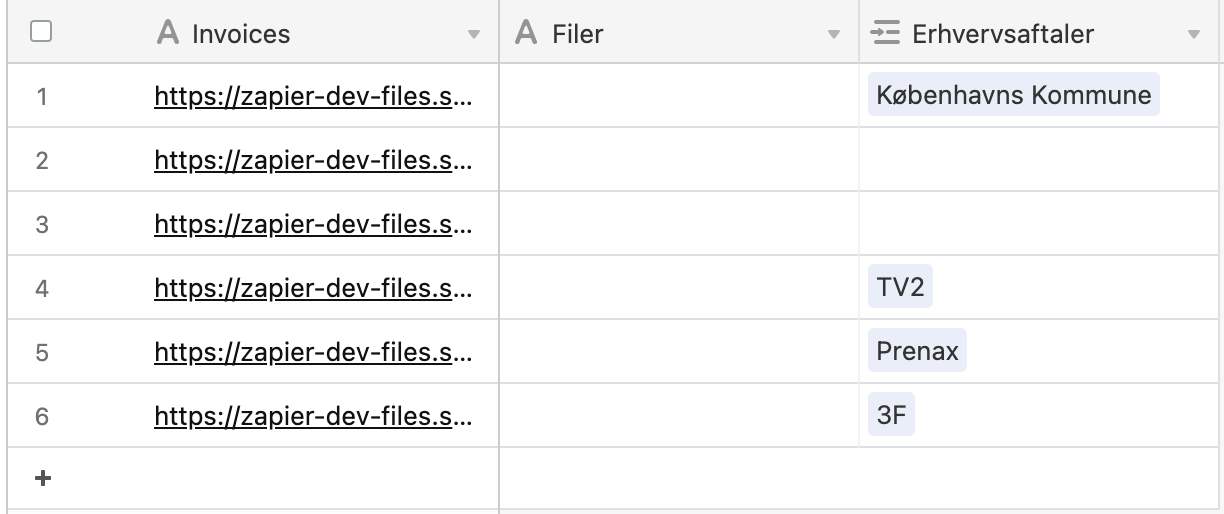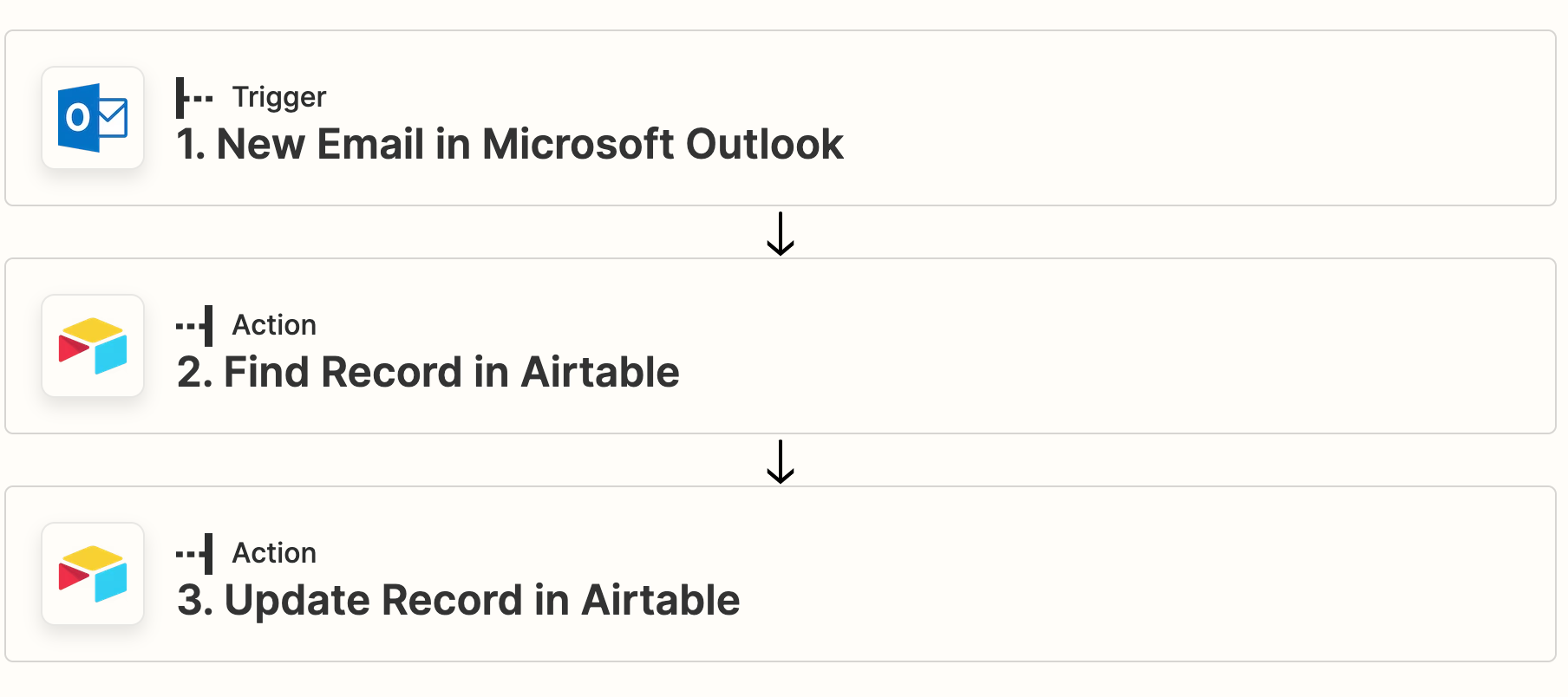Hello everyone!
So I have an Airtable database with currently 3 different rows.
I’ve made a Zap with Outlook as the trigger and Airtable as the action.
The trigger is set to be fired when a new mail is received in my inbox (that’s it for now).
The action should be to import the attachments from these mails to the 3 different rows in Airtable based on the incoming mail.
My question is: how do I differentiate between the rows in Airtable? Do I have to make 3 different Zaps? If so, what should I pick as Identifier in Outlook, if that’s possible to do?









